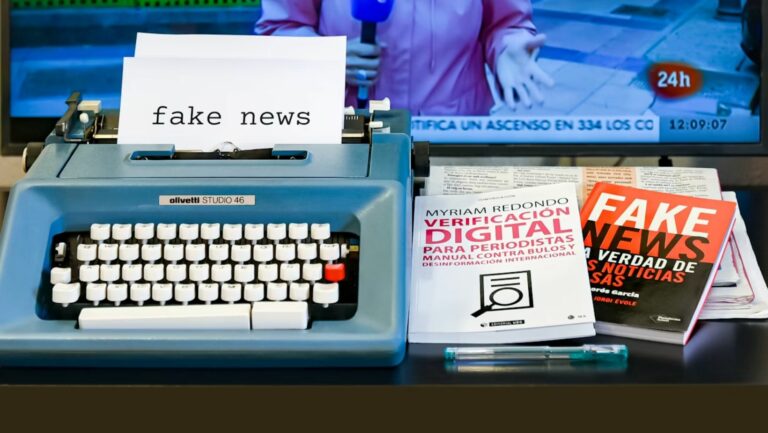Cultivating trust in an era of disinformation has become a Herculean task for Public Relations (PR) professionals.
The digital expanse is laden with misleading headlines, doctored images, and fabricated narratives, making it increasingly difficult for organizations to maintain credibility.
The role of PR in shaping public perception, previously challenging yet manageable, has now morphed into a complex battle against the waves of falsehoods disseminated through various online platforms.
Key Takeaways
● Disinformation challenges for PR include information overload, media manipulation, verification difficulties, decision-making impact, fake news spread, and trust erosion.
● Tactics for PR agencies combating disinformation include transparency, effective communication, message consistency, audience engagement via storytelling, and technology utilization.
● Technology, such as AI-driven content verification programs and advanced analytics, can help identify false narratives and understand audience sentiment.
● Ethical standards, including honesty, responsibility, fairness, and respect, are vital for PR professionals to combat disinformation.
● Despite challenges, fighting disinformation offers opportunities for PR to reinforce authenticity, accountability, and ethical engagement, leading to lasting trust.
Understanding the Terrain: The Challenges of Disinformation
Navigating the landscape of disinformation requires a keen understanding of its mechanisms. Disinformation, a deliberate attempt to deceive, is more sinister than mere misinformation, which might spread unintentionally.
Here are some of the issues that disinformation causes in our society:
Manipulation of media
Disinformation can be used intentionally to manipulate people’s trust, feelings, beliefs, and behaviors. This can worsen political polarization, incite violence, or even cause real-world harm.
Impact on Decision-Making
Disinformation can mislead citizens, thereby affecting decision-making processes and democratic governance. This can also create divisions within society by promoting notions of fear, uncertainty, and doubt.
Spread of Fake News
Social media platforms are especially prone to the rapid spread of fake news. Such false information can trigger panic and unrest among the public and contribute to confusion and misunderstanding.
Erosion of Trust
When people consistently encounter deceptive information, it can lead to an erosion of trust in information sources, whether government bodies, news media, public figures, or scientific institutions.
How Can PR Agencies Handle These Challenges?
There are certain strategies that PR agencies can use to develop trust and gain a long-term relationship with the people they serve. These can include:
Transparency and Accountability
Transparency is one of the most important ways to build trust. PR agencies should make it a priority to share timely and accurate information with their audience.
PR professionals should also take responsibility for their actions and messages. If a mistake is made, it should be acknowledged and corrected promptly.
Clear and Effective Communication
All communication needs to be clear, concise, and effective to develop trust. The messages should be easily understood and transparent so that no significant information is behind any ambiguity. Miscommunication can lead to distrust and confusion.
If you want to see this in action, feel free to visit this PR agency in Poland and see how they handle their communications with their customers.
Building Reputation and Consistency
A PR agency can enhance its credibility and trustworthiness by communicating with credible sources and disseminating only accurate, fact-checked information.
Using a consistent message throughout all platforms of communication also aids in establishing a reliable brand voice that builds a stronger relationship with the audience.
Engaging the Audience through Storytelling
A PR agency can skillfully weave narratives into its message to engage audiences and foster stronger connections.
Additionally, showcasing the agency’s expertise through stories and injecting social proof like reviews and testimonials can augment the trust level as these elements are perceived as non-biased endorsements for the brand or campaign.
Leveraging Technology: Counteracting Disinformation
Technology is a weapon and a shield in an arms race against disinformation. Advanced tools like AI-driven content verification programs offer hope in identifying and debunking false narratives before they gain traction.
These technologies scan vast amounts of data across diverse platforms, flagging suspect information for human review.
For PR practitioners, such innovations are invaluable allies, providing an upper hand in maintaining factual integrity across communications.
Simultaneously, the use of sophisticated analytics helps understand audience sentiment and track the spread of information.
This insight allows PR teams to tailor their strategies effectively—delivering targeted messages that resonate authentically with their audience segments.
The Role of PR Ethics
At the core of combating disinformation lies the unwavering adherence to ethical standards. For PR professionals, this means going beyond legal compliance and embodying principles of honesty, responsibility, fairness, and respect in every action and communication.
Engaging ethically also involves actively rejecting practices that contribute to spreading disinformation or exploiting vulnerabilities for gain.
PR ethics serve as both guidelines and guardrail; they ensure that efforts to build trust are grounded in integrity.
By setting a high bar for ethical conduct within their organizations and demanding it from others—including media partners and influencers—PR practitioners contribute to a healthier informational ecosystem where truth prevails.
Conclusion: A Path Forward
The fight against disinformation presents a formidable challenge for today’s PR professionals. It is a test of their ability to craft compelling narratives while defending against falsehoods designed to undermine and divide.
Yet within this challenge lies opportunity: the chance to reinforce the foundational values of authenticity, accountability, and ethical engagement upon which lasting trust is built.
Navigating this new terrain demands creativity, adaptability, and unwavering commitment to truth, something a great PR agency should do with much enthusiasm to win over people.
Building trust in the age of disinformation is a daunting task, but one well within reach for those who approach it with dedication and diligence.




